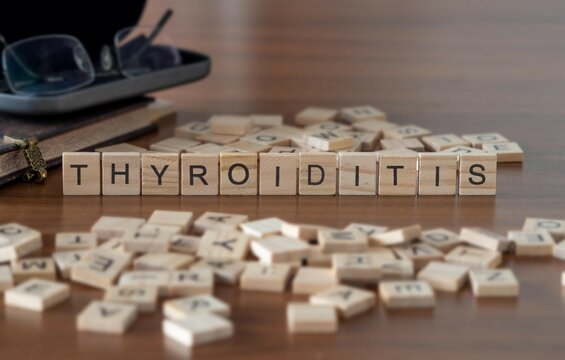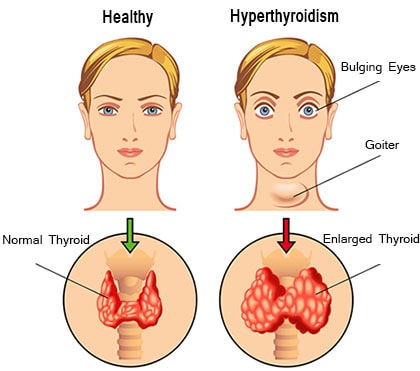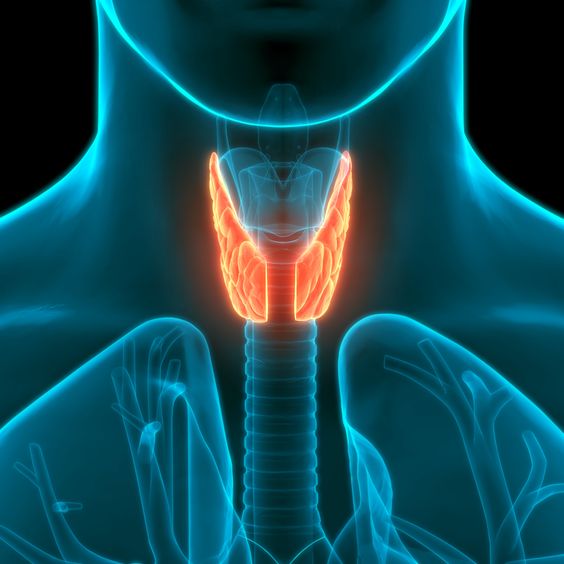Gut Health And Thyroiditis: The Gut-Thyroid Connection And Potential Interventions
The intricate interplay between gut health and thyroid function has garnered increasing attention in recent years, with emerging evidence suggesting a bidirectional relationship between the two. Dysfunction in the gut microbiota, intestinal permeability, and immune responses may contribute to the development and progression of thyroiditis, a group of inflammatory conditions affecting the thyroid gland. This article delves into the gut-thyroid connection, exploring the underlying mechanisms and potential interventions to promote gut health and mitigate thyroiditis.
The Gut-Thyroid Connection
The gastrointestinal tract houses trillions of microorganisms collectively known as the gut microbiota, which play a crucial role in maintaining immune homeostasis, nutrient metabolism, and overall health. Disruption of the gut microbiota, termed dysbiosis, has been implicated in various autoimmune and inflammatory conditions, including thyroiditis. Dysbiosis may lead to increased intestinal permeability, allowing the translocation of microbial toxins and antigens into systemic circulation, triggering immune responses and inflammation in distant organs, including the thyroid gland.
Furthermore, the gut microbiota contributes to the metabolism of thyroid hormones and the regulation of thyroid function through various mechanisms, such as the conversion of thyroxine (T4) to triiodothyronine (T3) and the modulation of thyroid hormone receptors. Imbalances in the gut microbiota composition may therefore impact thyroid hormone levels and thyroid function, potentially exacerbating thyroiditis symptoms.
Evidence supporting the gut-thyroid connection comes from both preclinical studies and clinical observations. Animal studies have demonstrated that alterations in the gut microbiota composition can influence the development of autoimmune thyroiditis in genetically susceptible mice. In humans, associations have been observed between gut dysbiosis, intestinal permeability, and autoimmune thyroid diseases, such as Hashimoto’s thyroiditis and Graves’ disease. These findings underscore the importance of addressing gut health in the management of thyroiditis.
Potential Interventions to Promote Gut Health
Given the significant influence of gut health on thyroid function and thyroiditis, interventions aimed at restoring gut microbiota balance and improving intestinal barrier function hold promise in mitigating thyroiditis symptoms and reducing disease progression. Several strategies have been proposed to promote gut health and modulate the gut-thyroid axis:
- Probiotics and Prebiotics:
Live bacteria known as probiotics can benefit one’s health if consumed in large enough amounts. Prebiotics are non-digestible fibers that selectively promote the growth and activity of beneficial gut bacteria. Both probiotics and prebiotics have been shown to modulate gut microbiota composition, enhance intestinal barrier function, and regulate immune responses. Studies have suggested the potential benefits of probiotic and prebiotic supplementation in autoimmune thyroid diseases, although further research is needed to determine optimal strains, dosages, and treatment duration. - Dietary Modifications:
Dietary factors play a significant role in shaping the gut microbiota and influencing immune function. Certain dietary components, such as fiber-rich foods, fermented foods, and polyphenol-rich plant foods, have been associated with a diverse and resilient gut microbiota profile. Conversely, diets high in processed foods, sugar, and saturated fats may promote gut dysbiosis and inflammation. Adopting a balanced and varied diet that includes a variety of nutrient-dense foods can support gut health and potentially alleviate thyroiditis symptoms. - Gut-Targeted Therapies:
Emerging gut-targeted therapies, such as fecal microbiota transplantation (FMT) and microbial-based biotherapeutics, offer novel approaches to restoring gut microbiota balance and treating gut-related disorders. FMT involves the transfer of fecal material from a healthy donor to a recipient with dysbiosis or gastrointestinal conditions. While FMT has shown promise in certain gastrointestinal disorders, its efficacy and safety in autoimmune thyroid diseases remain to be established. Microbial-based biotherapeutics, including engineered probiotics and microbial metabolites, represent another avenue for modulating the gut microbiota and immune responses in thyroiditis. - Lifestyle Modifications:
Lifestyle factors, including stress, sleep, physical activity, and environmental exposures, can impact gut health and immune function. Chronic stress, in particular, has been associated with alterations in the gut microbiota composition and increased intestinal permeability, which may contribute to inflammation and autoimmune conditions. Practicing stress management techniques, prioritizing adequate sleep, engaging in regular physical activity, and minimizing exposure to environmental toxins can support gut health and overall well-being.
Conclusion
The gut-thyroid connection underscores the importance of addressing gut health in the management of thyroiditis and related autoimmune thyroid diseases. Dysbiosis, intestinal permeability, and immune dysregulation may contribute to the pathogenesis of thyroiditis, highlighting the potential therapeutic implications of interventions targeting the gut microbiota and intestinal barrier function. Probiotics, prebiotics, dietary modifications, gut-targeted therapies, and lifestyle modifications offer promising strategies for promoting gut health and modulating the gut-thyroid axis. Further research is needed to elucidate the underlying mechanisms and optimize interventions to improve outcomes for individuals with thyroiditis. By recognizing the intricate interplay between gut health and thyroid function, healthcare providers can adopt a holistic approach to thyroiditis management, addressing both the gut and thyroid components of this complex disease spectrum.








